NeoVas Sirolimus-eluting Bioresorbable Coronary Stent System Details
Product Description
Stent Platform
Drug coating
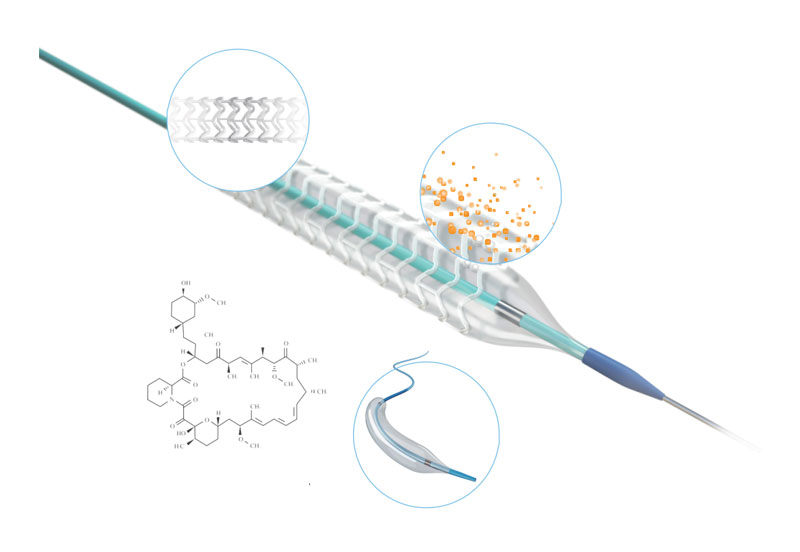
Drug
Delivery system
NeoVas RCT Study
The study enrolled 560 subjects in 33 centers from China, Test group(NeoVas): 278 cases, Control group (Xience stent): 282 cases.
Primary endpoint: the late lumen loss in one year follow-up
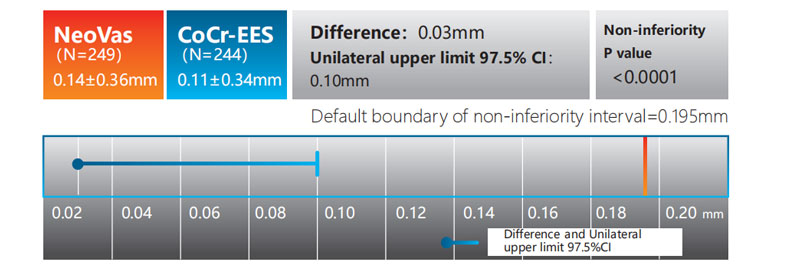
The clinical result at one year follow-up
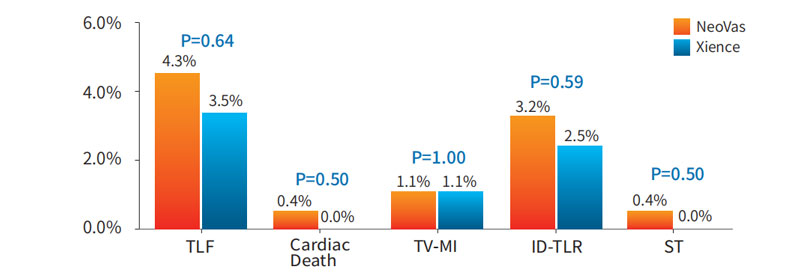
The clinical result at Three year follow-up
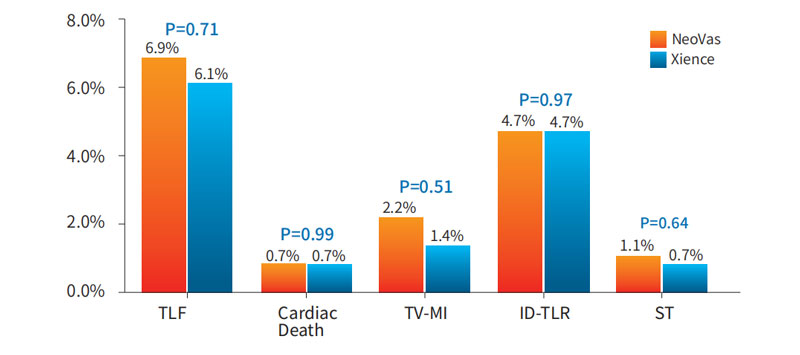
Conclusion:
The clinical events rate for Neovas bioabsorbable stent is low, showed equal safety and effectiveness with Xience metal stent.
NeoVas OPC study
The study enrolled 1103 subjects in 45 centers from China, two year clinical follow-up study has been completed to date.
1-2 year follow-up result
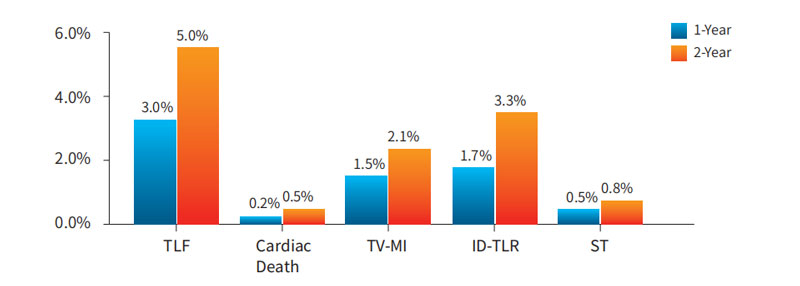
2 year stent thrombus: Compare with Absorb and Xience
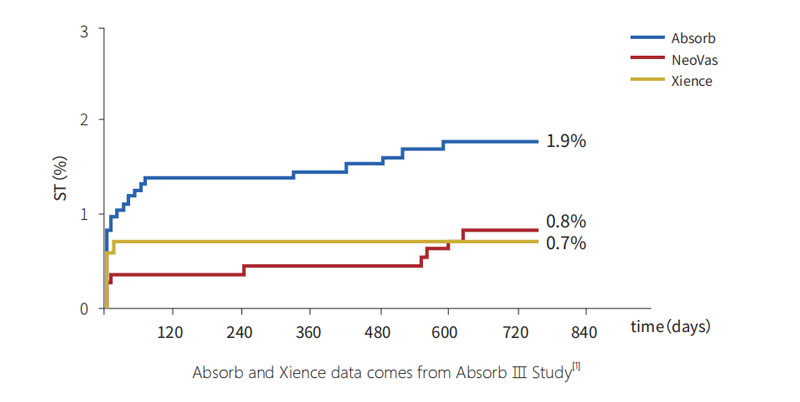
Conclusion:
2-year follow up Clinical results for 1103 subjects demonstrate that NeoVas bioresorbable stent has equal low clinical events rate. Compared with the first generation bioresorbable stent Absorb BVS, the clinical events rate has been obviously decreased, and it indicates that NeoVas performed favorable safety and effectiveness.
The Imaging study of the NeoVas Subgroup
The subgroup analyzed the imaging and function of 166 subjects from the randomized controlled study, 83 cases for test/control group.
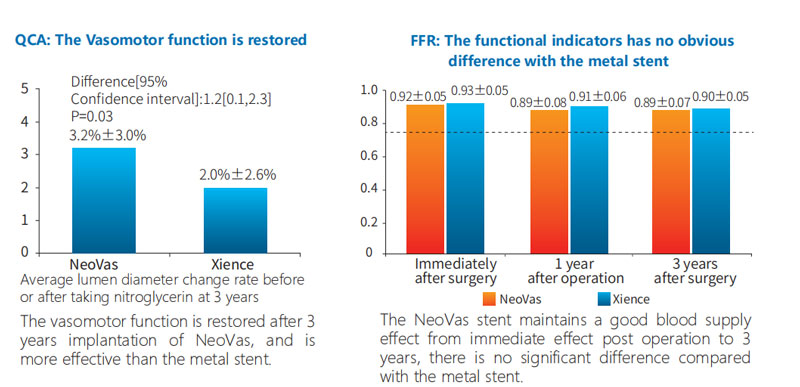
OCT: Study on stent absorption in 3 years
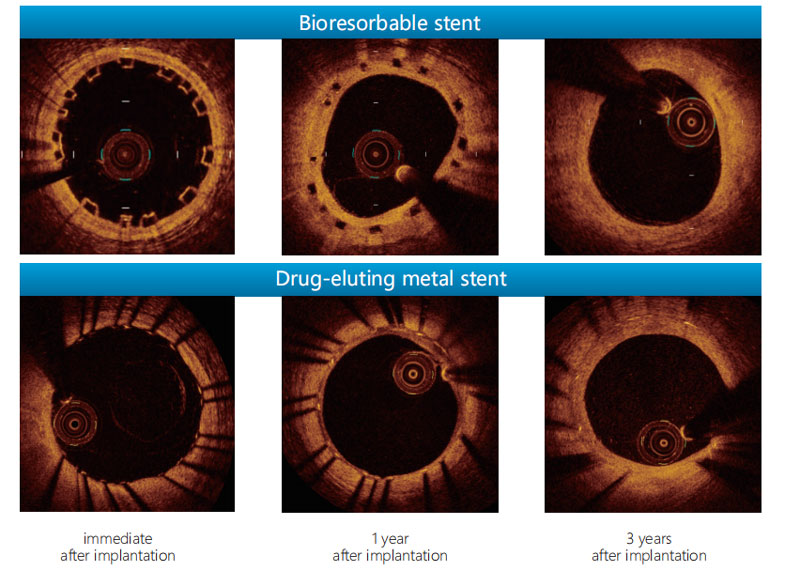
Conclusion:
NeoVas subgroup of 3 years clinical imaging data shows vessel vasomotor function has been restored after 3 years implantation, superior to metal stent. Blood supply keeps at favorable level. Most stent was degraded and absorbed after 3 years.
The importance of standardized PSP operations
Tips: Absorb BVS did not perform standard PSP operation and increased the safty incident
The Absorb Ⅱ/Ⅲ study shows that the safty incident of TLF and stent thrombus was significantly increased and has statistical difference with metal stent due to the failure to perform PSP operation.
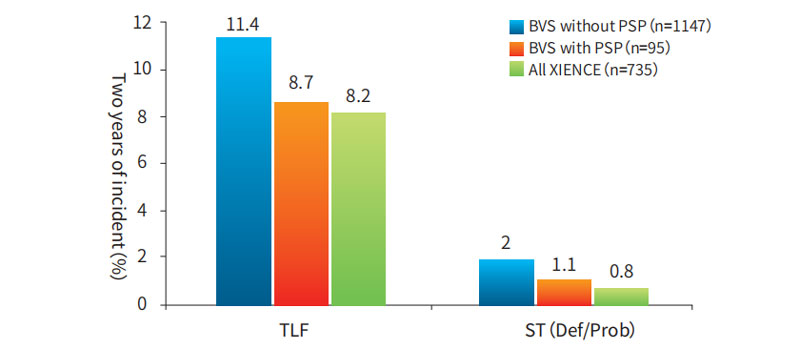
The TLF and stent thrombus of patient using PSP and without using PSP operation in Absorb Ⅲ study
Experience: Standardized PSP operation ensures safety for Neovas Stent
The application rate of PSP operation is relatively low in Absorb Ⅱ and Absorb Ⅲ study, the TLF and stent thrombus of BVS in three years is relatively high, displays statistical difference with metal stent; the PSP operation perform rate in Absorb China study is relatively high, the TLF and stent thrombus of BVS in three years is relatively low and has no statistical difference with metal stent.
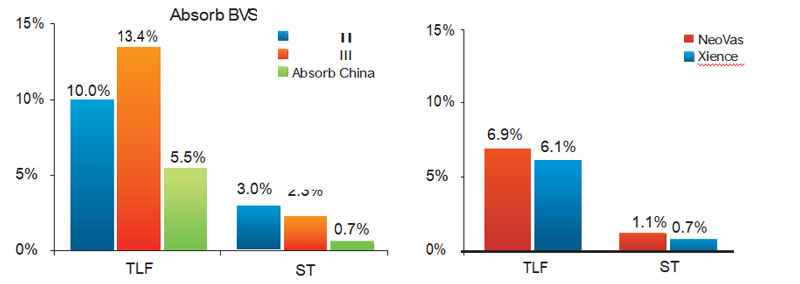
Comparison of stent thrombus (ST) and TLF at three years in Absorb BVS clinical study Stent thrombus (ST) and TLF at three years for NeoVas clinical study.
In Neovas clinical study, with standardized PSP operation, the TLF and ST in three years has no statistical difference. Strictly PSP operation performing is critical to significantly decrease stent adverse cardiac events.
Why PSP operation significantly decrease adverse cardiac events?
The direct reason of stent long-term adverse cardiac events (stent thrombus) is the stent malap- position during implantation. Stent malapposition will cause micro vascular dissection. For metal stent, stable new vessel wall will be formed after revascularization and endothelialization supported by metal stent. For bioresorbable stent, this vessel wall is unstable due to the stent degradation. Stent even breaks at thin endothelializaton tissue area and leads to the direct connection between blood and micro vascular dissection, this will cause stent thrombus rate increased higher compared with metal stent.
The objects of the regulated PSP operation is to ensure the stent apposition and exclude the vascular dissection.
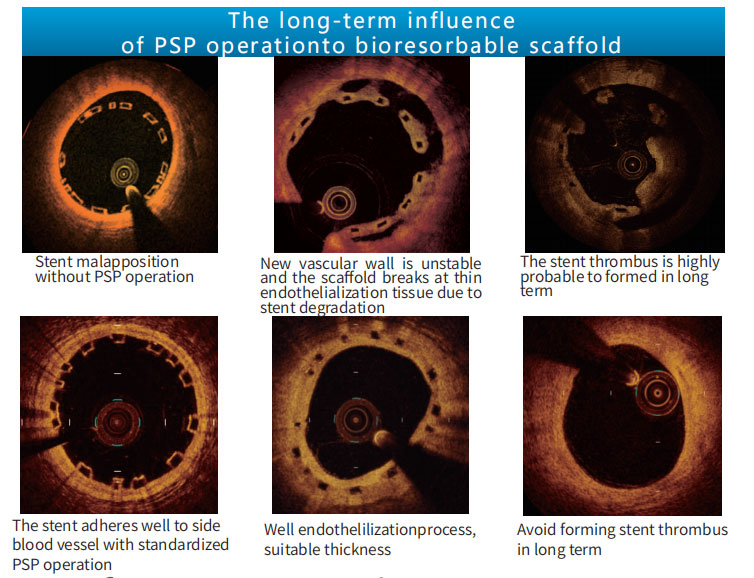
How to perform PSP operation
The critical operation flowchart of standardized PSP operation
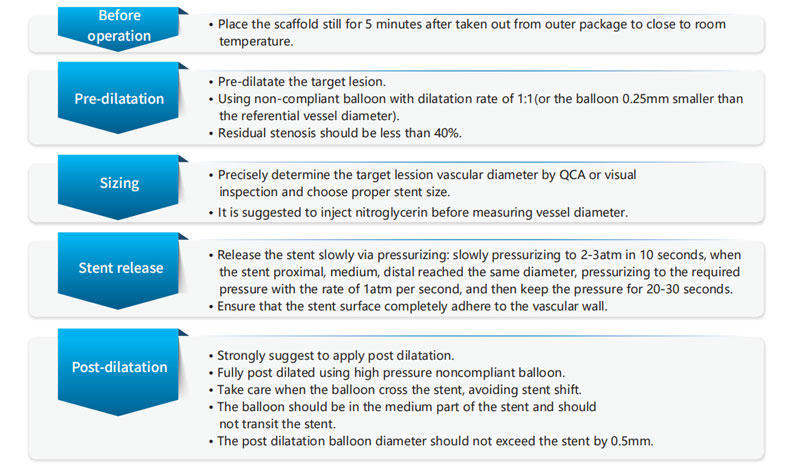



















 Email Us:
Email Us: